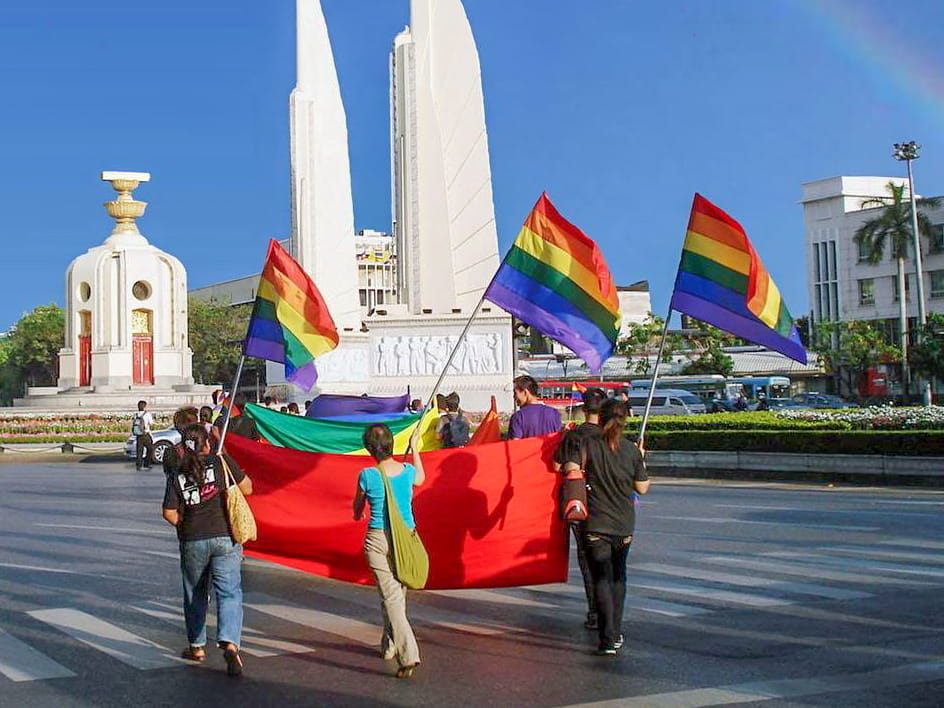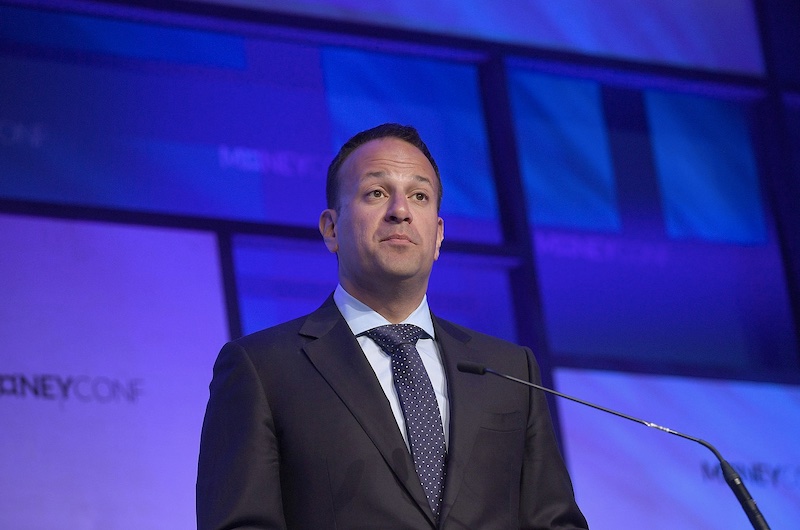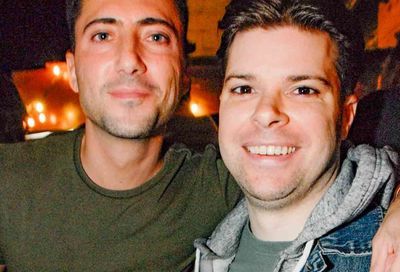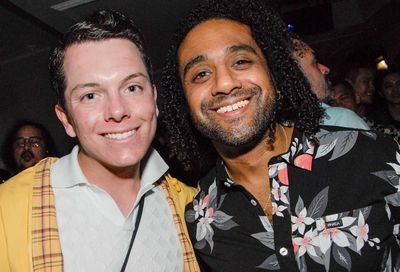Marrying Matters
From Proposition 8 to New York lawmakers – with a bankruptcy court thrown in for good measure – marriage equality is a bi-coastal proposition this week
From coast to coast, this week has been understood to have high stakes for those seeking marriage equality – but an unexpected ruling from an unexpected court raised them even higher.
On June 12, the nation observed the 44th anniversary of the Supreme Court’s ruling striking down interracial marriage bans in Loving v. Virginia. Julian Bond, the former chairman of the NAACP who has been a strong advocate for LGBT equality, published an op-ed in USA Today over the weekend, writing, ”Like the anti-miscegenation statutes struck down 44 years ago, Prop 8 serves no purpose but to permit one group of Americans to degrade another.”
The week’s outlook was heavy on marriage, starting with the challenge to Proposition 8. A June 13 hearing scheduled before U.S. District Court Judge James Ware was to address two issues in the case, Perry v. Brown. The first was a request by the proponents of Proposition 8 to toss out now-retired Judge Vaughn Walker’s ruling that found Proposition 8 to be unconstitutional because Walker is gay and has a long-term partner. The second question, also raised by the proponents, was about whether video taken of the trial may be used, either by Walker or more broadly.
Meanwhile, it was to be the closing days of the legislative session in Albany where advocates are pushing for a marriage-equality bill and the on-the-record support in the state’s Senate was still shy of the 32 needed for passage.
The hearing in the Proposition 8 case went well for the opponents of Proposition 8 on June 13. Ware said that the lawyers and Judge Walker would be able to retain their copies of the trial tapes and, though he didn’t reach a decision during the hearing, appeared from reports to be extremely skeptical of the request to toss out the ruling because of Walker’s same-sex relationship.
Good news also came from Albany on Monday, where The New York Times reported that three Democrats who previously opposed the marriage equality bill – Joseph P. Addabbo Jr., Shirley L. Huntley and Carl Kruger – would now support it. A Republican, Jim Alesi, also announced his support for the bill.
Then, as the day wore into the evening on the East Coast, the unexpected news came from the U.S. Bankruptcy Court for the Central District of California, in Los Angeles.
The court released an opinion – signed by 20 of the 24 judges of the bankruptcy court – finding Section 3 of the Defense of Marriage Act unconstitutional in a bankruptcy filing brought by a same-sex married couple, Gene Douglas Balas and Carlos A. Morales.
The opinion described the case as ”about equality, regardless of gender or sexual orientation, for two people who filed for protection under Title 11 of the United States Code (Bankruptcy Code).”
The case – a joint chapter 13 bankruptcy reorganization petition – was filed by a couple legally married to each other in California, Balas and Morales, on Feb. 24, one day after President Barack Obama’s position that Section 3 of DOMA was unconstitutional was announced in a letter sent by Attorney General Eric Holder to House Speaker John Boehner.
The court noted, ”The [United States] trustee seeks dismissal solely because the Debtors are a same-sex married couple, in violation of DOMA’s definition of ‘spouse’ as the statute applies to Bankruptcy Code [Section] 302(a).”
The case had been brought to the attention of the House Bipartisan Legal Advisory Group (BLAG), which is defending the Defense of Marriage Act in several other cases, but the BLAG had not intervened in this case, according to the opinion.
After reviewing the law as it relates to DOMA – focusing extensively on the specifics of Holder’s Feb. 23 letter – the court concluded: ”In the court’s final analysis, the government’s only basis for supporting DOMA comes down to an apparent belief that the moral views of the majority may properly be enacted as the law of the land in regard to state-sanctioned same-sex marriage in disregard of the personal status and living conditions of a significant segment of our pluralistic society. Such a view is not consistent with the evidence or the law as embodied in the Fifth Amendment with respect to the thoughts expressed in this decision.
”The court has no doubt about its conclusion: the Debtors have made their case persuasively that DOMA deprives them of the equal protection of the law to which they are entitled.”
The opinion, the first substantive opinion to rule on the constitutionality of DOMA since the Feb. 23 Holder letter, sent shockwaves throughout the legal establishment.
University of California, Los Angeles, law professor Adam Winkler wrote, ”If the Supreme Court declares bans on gay marriage unconstitutional – what would be the Brown [v. Board of Education] for gays and lesbians – In re Balas suggests that the Holder letter is likely to be, like Truman’s executive order [desegregating the military], an influential and historic turning point.”
That was Monday.
On Tuesday, June 14, Ware issued his ruling on the proponents’ effort to toss out the Proposition 8 decision because Walker is in a same-sex relationship. He denied the motion, stating at one point in the 19-page decision, ”[I]t is inconsistent with the general principles of constitutional adjudication to presume that a member of a minority group reaps a greater benefit from application of the substantive protections of our Constitution than would a member of the majority.”
Soon thereafter, he issued a written ruling on the recordings of the trial, denying the proponents’ Motion for Order Compelling Return of Trial Recordings. Going a step further, Ware also set ”August 29, 2011 at 9 a.m. for a hearing on Plaintiffs’ Cross-Motion to lift the Protective Order on the video recording of the trial” – a move sought by the plaintiffs to, as lead lawyer Ted Olson put it, to provide ”an opportunity … for the American people to see that trial.”
The effort to publicize the trial is a long-term goal of Olson’s, who told a group of reporters in May, ”If you had been there during this trial and if America had been there during this trial, attitudes would change overnight.”
Overnight in New York, meanwhile, a second Republican, Roy McDonald, announced his support for the marriage equality bill and Gov. Andrew Cuomo (D) – who earlier said he would only submit a bill if he was confident it would pass – submitted a bill, the Marriage Equality Act, to the Legislature.
Later in the afternoon, Senate Majority Leader Dean Skelos (R) – who is opposed to the bill – told New York Times Albany Bureau Chief Danny Hakim that a marriage vote would come ”probably Friday.”
By the end of Tuesday, multiple Republican senators made statements suggesting that they were considering voting yes, and several senators were still not on the record with a definitive position on the bill.
Advocates were hopeful as the first 48 hours of the week changed the tide on the marriage bill in New York, saw a clearly defined rejection of the Proposition 8 proponents’ claims against Walker in California, and a new ruling in bankruptcy court provided another push for marriage equality at the federal level.
In its conclusion, the bankruptcy court chose to quote a passage not from the 44-year-old Loving case, but instead from Justice William O. Douglas’s opinion for the Supreme Court in a 1965 case – Griswold v. Connecticut – that in addressing married couples’ access to contraception first addressed marriage itself.
”Marriage is a coming together for better or for worse, hopefully enduring, and intimate to the degree of being sacred,” Douglas wrote. ”It is an association that promotes a way of life, not causes; a harmony in living, not in political faiths; a bilateral loyalty, not commercial or social projects. Yet it is an association for as noble a purpose as any involved in our prior decisions.”
For updates on New York marriage, visit Poliglot.
Support Metro Weekly’s Journalism
These are challenging times for news organizations. And yet it’s crucial we stay active and provide vital resources and information to both our local readers and the world. So won’t you please take a moment and consider supporting Metro Weekly with a membership? For as little as $5 a month, you can help ensure Metro Weekly magazine and MetroWeekly.com remain free, viable resources as we provide the best, most diverse, culturally-resonant LGBTQ coverage in both the D.C. region and around the world. Memberships come with exclusive perks and discounts, your own personal digital delivery of each week’s magazine (and an archive), access to our Member's Lounge when it launches this fall, and exclusive members-only items like Metro Weekly Membership Mugs and Tote Bags! Check out all our membership levels here and please join us today!
























